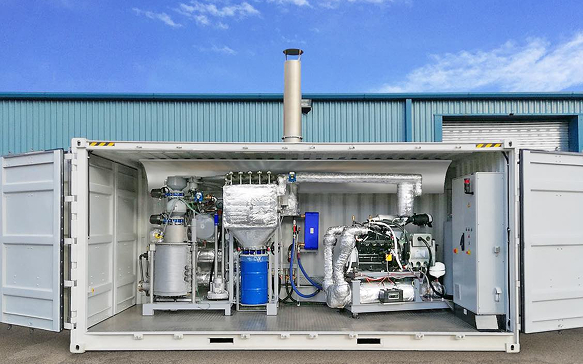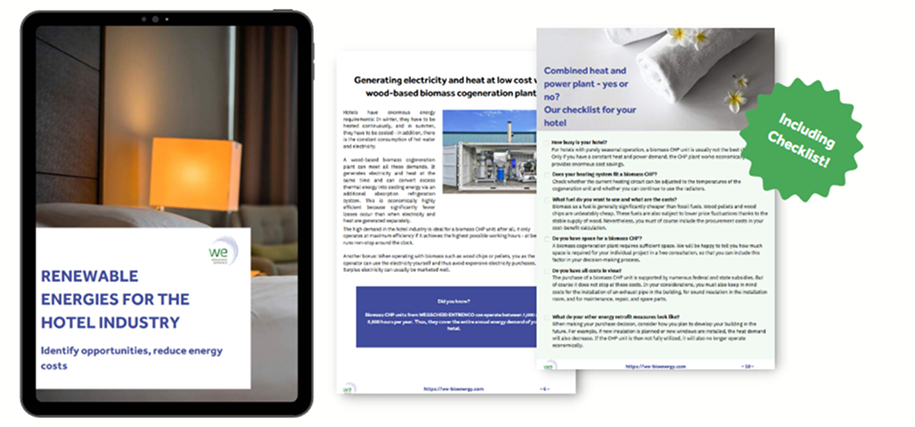Wind energy has been an integral part of our power supply for years – its share is over 15 percent (source: The Federal Government of Germany) and it continues to rise. Wind energy is now also available as an energy source for individual buildings. These so-called small wind turbines can do a lot for the climate-friendly image of a hotel – but do not yet convince with their efficiency.


Biomass Cogeneration Plants for the Hotel Industry
Reduce energy costs, operate efficiently.
The hotel industry is under pressure: The loss of revenue due to the COVID-19 pandemic has not yet been absorbed by a long shot, and energy prices are rising immeasurably.
How are hotels supposed to cope with the costs? After all, it’s impossible to do without energy — guest rooms and spa areas need to be heated, and hot summers cry out for reliable air conditioning.
More and more hotels are therefore switching to a more stable and cost-effective energy supply. Renewable energy sources make this possible.
We compare the most important renewable energies and show you the advantages and disadvantages.
Did you know?
Renewable energies for the hotel industry
Your Options at a Glance.
Renewable energies for the hotel industry
If you want to operate efficiently and score points with your consumers, you can’t do without renewable energies.
They have long since proven that they not only benefit the climate, but also help protect businesses from rising energy prices.
For the hotel industry, there are several options for climate-friendly and cost-saving energy generation. What are they? We have summarized them for you:
Solar Energy
The large roof areas of hotel facilities are perfect for installing solar collectors and photovoltaic systems on them. Solar thermal systems make optimum use of solar energy down to the last ray of sunlight to generate energy cost-effectively and in a climate-neutral manner. A small restriction: the sun must be shining, of course. So there is a certain dependence on weather conditions and location.
)
Biomass Cogeneration Plants
Biomass cogeneration plants are ideal for hotels. They operate with maximum efficiency by being able to generate electricity as well as heat and cooling – and they do so using cost-effective fuels such as wood chips and pellets. Another advantage of cogeneration units is that they are highly economical if they are in operation around the clock – ideal for hotels with constant energy requirements.
Efficiently generate electricity and heat
with biomass CHP units from WegscheidEntrenco.
Efficiently generate electricity and heat with biomass CHP units from WegscheidEntrenco.
More and more hotel operators are opting for a combined heat and power plant to generate heat, cold and electricity. The reason is obvious: hotels need a lot of energy, around the clock. Combined heat and power plants can cover just that. In fact, they work most effectively when they are in use non-stop. If a cogeneration plant is operated with biomass such as wood chips or pellets, fuel costs are also reduced, because wood as a fuel is unbeatably cheap.
The energy generated can be used directly by the hotel – excess energy can be sold to the local electricity provider, so additional money can be earned thanks to feed-in tariffs. And not to forget the upgrading and improved green image of your property.




